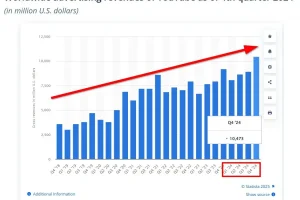Saving for retirement is one of the most important goals you can set for yourself. By doing this, you will have a good amount of money saved up for the future, and you will be prepared to take care of yourself and your family when the time comes. However, there are certain things that you need to keep in mind in order to be able to save effectively. These are outlined below.
Traditional IRAs vs Roth IRAs
There are many different retirement savings options, but you can choose the right one for you. The traditional IRA and the Roth IRA are two of the most popular types. However, these types of accounts differ in key ways.
One of the main differences between these two accounts is how they are taxed. When you withdraw from a Roth IRA, you will pay less tax. On the other hand, when you use a traditional IRA, you will be subject to ordinary income tax.
This can lead to a higher tax rate later. To avoid this, you should consider how much money you have in your retirement accounts and your current and future tax rate.
You also want to make sure that you diversify your retirement funds. A good investment firm will advise you on the best investments for your unique situation.
Rolling money over to an I.R.A
If you have a 401(k) plan with a former employer, you may be able to roll it over to an IRA. This could give you more investment options and streamline your investments. It also gives you the ability to make a withdrawal and keep the money tax-deferred until you reach retirement age. However, before you do this, you’ll need to know a few things.
You’ll need to talk to your financial advisor about this option. They will be able to tell you what kinds of fees and expenses you may face if you roll over to an IRA.
Most IRA providers are banks and brokerage houses. Some of these companies will also allow you to wire funds. The downside is that you’ll be charged for transaction fees.
Target-date funds
Target-date funds are a good option for many people. They’re a streamlined approach to saving for retirement that’s both easy and effective. But they can also carry some risks.
As you get closer to your target retirement date, you’ll see the fund rebalance to a more conservative allocation. This process is known as a glide path. Its effect on your portfolio will depend on the fund you choose.
In the early years of your career, you’ll have a healthy proportion of stocks in your target date fund. As you approach retirement, you’ll see your investments move more to bonds. This shift is an effective way to diversify your portfolio.
Target-date funds are a popular investment choice for 401(k) plans. In fact, more than $3 trillion was invested in target-date funds at the end of 2021.
Roboadvisers
When it comes to saving for retirement, many people like the simplicity of using roboadvisers. They offer low fees and easy access to their accounts. Some roboadvisors also provide human interaction. However, some people still prefer the one-on-one relationship that a human advisor can give them.
A robo advisor is a virtual service that uses algorithms to manage investment portfolios. You can get started with one for as little as a few dollars. The software makes decisions on your behalf, based on your savings, age, risk tolerance, and other factors. It may even suggest ways to increase your savings, including harvesting losses and getting back on track if you’ve fallen off.
Roboadvisors have grown in popularity in recent years. They’re ideal for novice investors, who don’t have the knowledge or experience to invest on their own. But they can also be a boon to savvy investors.
Insurance options
One of the most important things to think about when saving for retirement is health care. Health care utilization is on the rise and you need to plan ahead. There are many options available to help you secure coverage.
Among the choices is whole life insurance. The cash value of this type of policy can be used to supplement your retirement income. However, this is a long-term strategy and the policy should not be your only source of income.
Another option is a traditional pension. A traditional pension is a defined benefit (DB) plan. These plans are often easy to manage and provide a fixed benefit at the end of your life.
If you are unsure how to use the cash value of your whole life policy, consider trading it for an annuity. This is a popular choice among workers who choose to receive a monthly payment for their entire lives.








